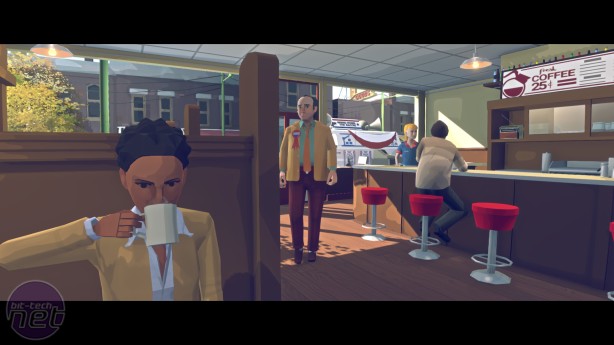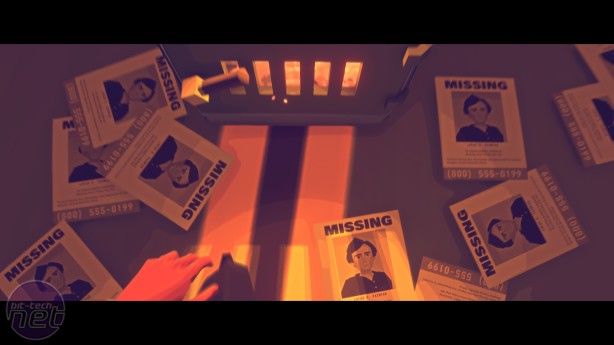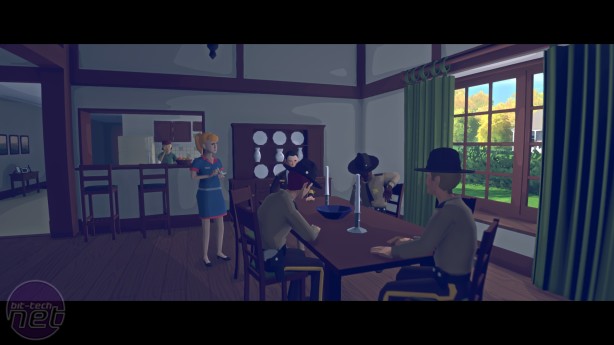
Virginia Review
Price: £6.99Developer: Variable State
Publisher: 505 Games
Platform: PC
On paper Virginia is my perfect game. A first-person detective game inspired by Twin Peaks, in which you explore a small American town investigating the disappearance of a young boy? This is my wallet. You may have it. I wondered how long it would take for first-person adventure games to produce a proper, full-blooded sleuth-'em-up, and it looked as if Variable State had finally hit the nail on the head.
As it turns out, Virginia isn't the game I expected it to be. Which is fine! Can't blame a game for not playing as I assumed it would. Unfortunately, I don't like the game that Virginia actually is at all. In fact, I don't really understand its motivations, and I feel like it misses the point of its own inspirations entirely.
You play as Anne Tarver, an FBI agent who has been assigned to investigate the disappearance of a boy named Lucas in the town of Kingdom, located in the US state of Virginia. But you're also performing an internal investigation of your own partner, Agent Maria Halperin, who has been implicated in the disappearance of several files from the agency's archives. At least, I think that's the reason behind the investigation. I'm not wholly sure, and the reasons why will soon become clear.
Initially the game does resemble a walking simulator, in that you walk around some attractive, artistically abstract environments that can't be interacted with all that much. But Virginia quickly differentiates itself from other games of its ilk in two important ways. Firstly, in a big departure from a genre that loves the sound of its own voice, Virginia has no dialogue whatsoever, be it spoken or written. Instead the game communicates its story in other ways. Character gestures and facial expression indicate what is occurring between them, while in-game text such as case files and newspapers help illustrate more detailed plot points. The music gets in on the action too, setting the tone through musical cues.
The other major difference is Virginia's filmic editing. The game is divided into scenes as opposed to levels, and rather than flowing from one environment to the next or separating them through loading screens, Virginia cuts between its locations exactly as a film would. One minute you're sat in a cafeteria drinking coffee with Halperin, the next you're riding alongside her in her car, and moments later you're in a rocky meadow partially cordoned off by police tape. The intent here is clearly to replicate the pace of a detective drama, with each scene providing just enough information before moving ahead with the story.
On a stylistic level, I think Virginia is excellent. Truly. The environments are vibrant and pleasingly detailed, the animation is wonderfully expressive, vital given what Virginia aims to achieve. And the music, oh my, the music. It's incredible; a soaring, soulful orchestral score that almost sold me on the game by itself. It's almost certainly the best soundtrack you'll hear in a game this year, and out of all the ways Virginia tries to evoke shows like Twin Peaks or True Detective it's the music that succeeds the most.

MSI MPG Velox 100R Chassis Review
October 14 2021 | 15:04













Want to comment? Please log in.